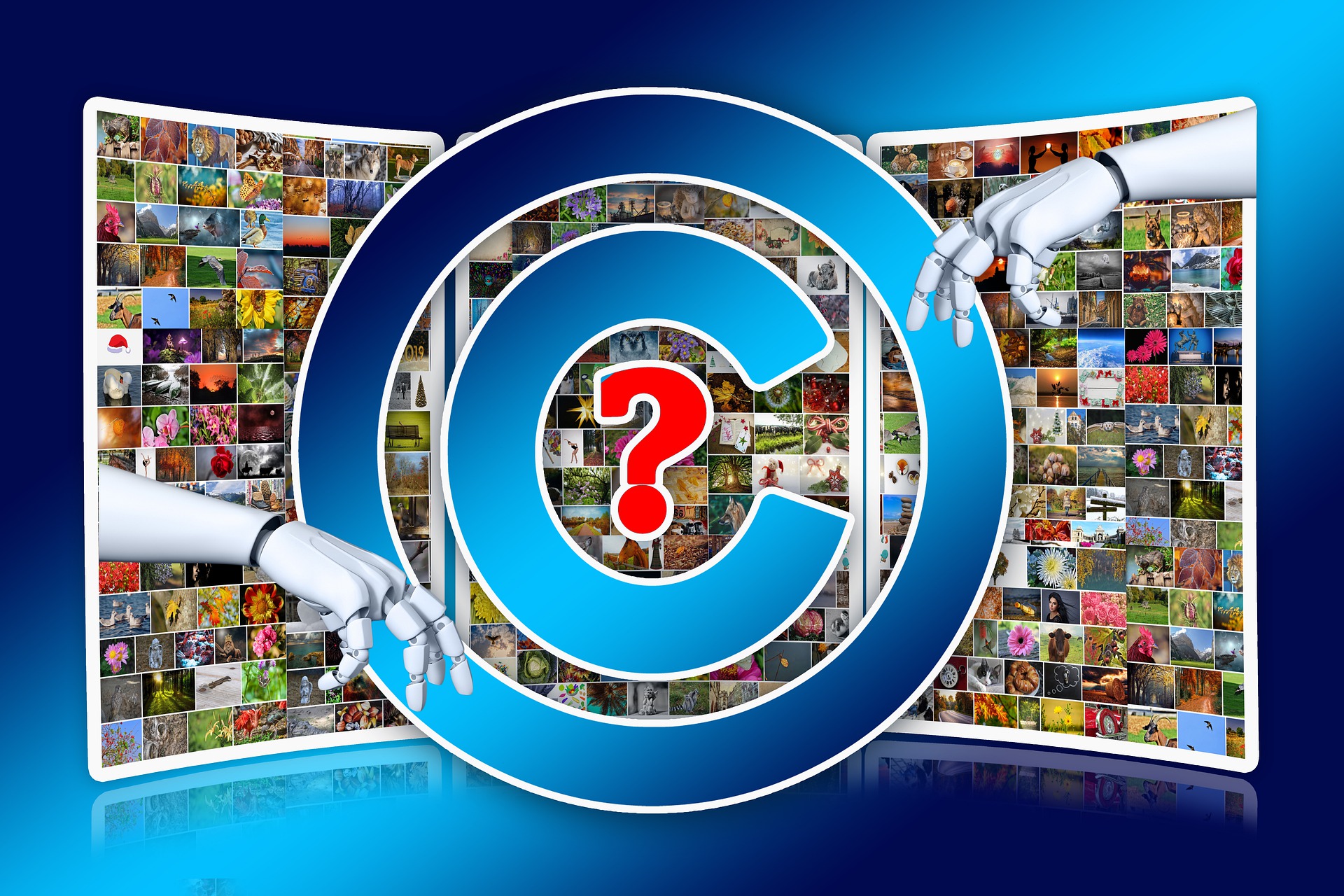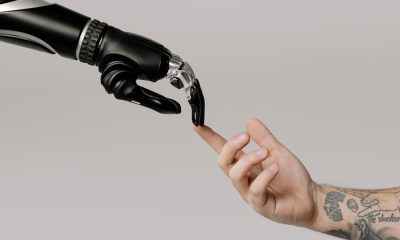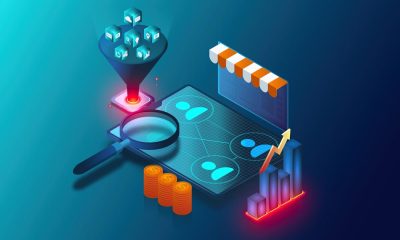General Advice
AI and Copyright: What are the Rules?

Small and Medium Enterprises (SMEs) are taking advantage of Artificial Intelligence (AI) technology to make their processes more efficient, helping them make better decisions, and increasing their overall success. The advantages of using AI are clear, but SMEs must bear in mind the regulations concerning copyright infringement and plagiarism when utilizing AI. This article will examine the principles governing AI copyright, such as for art or music, as well as the results of plagiarism in scholarly writing.
AI and SMEs: How AI is Changing the Game?
AI is offering SMEs a variety of ways to rival bigger corporations. By making use of AI tools and applications, small businesses can automate tedious activities, make more informed judgments, and enhance customer service. As an example, chatbots can be utilized to offer instant customer assistance, while predictive analytics can be used to uncover patterns and anticipate potential outcomes. The utilization of AI also helps SMEs find new prospects and raise their profits.
Plagiarism and AI
Plagiarism is the unauthorized use of another person’s work or ideas without providing recognition. AI technology can be used to create text, music, and other forms of content, often producing remarkable results. If someone takes another’s work and passes it off as their own after using AI to modify it slightly, this could be seen as plagiarism as well.
SMEs may find themselves on two sides of this topic. They could be plagiarizing content from a more successful business, or it may be them who are subject to plagiarism from a knock-off brand. Either way, for SMEs, this can bring about unfavorable outcomes, both legally and in terms of their public image.
AI can also be utilized to identify plagiarism. While AI-powered plagiarism detectors can pinpoint resemblances between two texts, they are not able to conclude if the use of another individual’s work is acceptable or a breach of copyright. Thus, it is vital for small businesses to comprehend fair use and infringement in order to prevent any legal issues. It’s better to be safe than sorry, isn’t it?
SME’s utilizing AI technology should be mindful of copyright regulations to guarantee that any content created by AI is not plagiarized but rather original. This can be accomplished by providing the AI system with proper instruction and verifying that it is not simply reproducing previously established material.
AI and Copyright: The Basics
Before delving into how AI and copyright interact, it’s essential to comprehend the fundamentals of copyright law. Copyright is a legal claim that allows the originator of an original work to have exclusive authority over its use, distribution, and monetization. Copyright legislation defends a broad selection of creative works such as literature, music, art, and software. Generally speaking, only productions generated by people can be copyrighted.
Navigating Copyright Issues in AI-generated Art
When creating content, SMEs may consider adding visual content. AI-generated artwork is becoming increasingly trendy, and some of these creations are being sold at high prices at art auctions. The most popular software that produces AI-generated art is Midjourney.
Midjourney is an artificial intelligence program that translates text into pictures based on what the user inputs. This technology has the potential to revolutionize art creation for people and businesses alike. Midjourney AI is becoming increasingly popular among SMEs.
However, who has the right to the copyright of this art—the artist or the AI? This is a complicated question, as copyright laws grant rights to whoever created the work. If an artist creates a computer program to aid them in their artistic endeavors, then they hold the copyright for the end result.
AI-Generated Music Copyright Ownership
SMEs may choose to use AI-generated music, thinking that they are safe from copyright laws by doing so. But are they? Some suggest that the individual who constructed the AI system that produced the music should be regarded as the author and possessor of copyright. Others argue that whoever instructed the AI or presented it with data to learn from ought to be credited as the author and copyright holder. Still, others propose that ownership of copyright should be shared between both human and computer-generated sources.
It is probable that laws will be created to address the issues concerning AI-produced music as it becomes more common. Until then, those who create AI-generated music should consult with lawyers to learn the best approach for safeguarding their intellectual property.
Citing AI in Papers: The Importance of Transparency
AI is being utilized more often in academic studies, and SMEs that employ AI for their studies must be open about the systems they use. With AI technology always changing, it can be tricky to provide precise information regarding the system employed. Nevertheless, SMEs should recognize any restrictions and potential prejudices in their research findings.
Popular AI Tools
AI tools, like machine learning algorithms, natural language processing, and chatbots, can assist SMEs in automating mundane jobs, examining consumer information, and sharpening their decision-making skills.
What is the tool that pops into your head when you hear AI? It’s probably Chat GPT. Let’s see how the use of Chat GPT affects SMEs.
Chat GPT
ChatGPT is a free informational resource that uses AI technology to provide answers through conversation rather than traditional search engine results.
ChatGPT can help SMEs in many ways. Some of them are shown below.
- Providing information and guidance: Chat GPT functions as a language model, possessing an extensive database of knowledge related to business management, marketing, and intellectual property.
- Conducting Research: Chat GPT is a useful tool for SMEs who want to do research on topics pertinent to their operations, such as consumer trends, consumer habits, and competitor analysis.
- Generating Content: Chat GPT can help SMEs with customer service by responding to commonly asked questions, troubleshooting problems, and offering assistance.
ChatGPT’s generated responses are not subject to copyright law, so they can be used without permission or a license. But it is essential to remember that these responses could contain copyrighted material from other sources, such as words or pictures. In these cases, it is critical to get permission or authorization to utilize the material for a certain purpose in order to prevent breaking the intellectual property rights of another person.
Final Thoughts
In the rapidly changing environment of technology, it is essential for small and medium-sized businesses to be aware of the relationship between artificial intelligence and copyright law. AI-generated content may create difficult issues, but it also offers possibilities for invention and imagination. By comprehending the regulations concerning AI and copyright, SMEs can guarantee that they are using these instruments responsibly and ethically.
SMEs should take advantage of the potential that AI technology offers while being aware of their legal responsibilities. By doing so, they can utilize AI tools to improve their business practices and create unique products while respecting the rights of authors and making sure that their use of AI complies with copyright regulations. As AI progresses further, it will be fascinating to observe how copyright laws adjust to accommodate the creative potential that AI offers.
Opinion
How AI is Impacting Software Development Industry

In my tenure of nearly a decade in the software development field, I’ve seen small and medium business owners confront numerous challenging situations. The biggest challenge is competing with big companies while working with fewer people and less tech. This is where AI, or Artificial Intelligence, comes in.
In my own work, I’ve seen how AI can help small businesses do better. It can help us work faster, more easily, and save money. This article is about my experience with AI in software development. I’ll share how AI is changing the software field and how small businesses can use AI to improve their work.
Faster Work with AI
In my work as a developer, I’ve found AI tools can really speed things up. For instance, there was this one project where the deadline was tight. Using AI, we automated routine tasks like making code snippets and running tests. This freed up our time to focus on more important things. We finished faster than expected. I learned that small businesses can use AI to keep pace with big companies.
But, it’s not all smooth sailing. AI has its flaws. It’s like the time when I used an AI tool to generate code for a complex project. It ended up with errors and didn’t quite fit the project’s needs. So, I learned that while AI is helpful, we must always check the quality of the code it produces. Even though AI helps us work faster, we still need experienced developers to go over the AI-made code and make it better. I’ve found that this teamwork approach with AI makes sure the code is done right and keeps our standards high.
Making Reviews Easier with AI
AI is not just for coding. It also helps with reviewing work, but people don’t talk about this much. I remember using an AI tool called Reviewpad in one of my projects. It was pretty smart. It looked at past work to decide who should review new work, so the same person wasn’t always loaded with tasks. This made the review process faster. We could quickly finish reviewing, add the new code to the main project, and keep things moving.
By using tools like Reviewpad, small businesses can work better together. This is just another example of how AI is changing the way we work in software development.
Filling in Skill Gaps with AI
In traditional software work, developers handle most tasks like fixing bugs. But, some complex tasks need more experienced people, like Tech Leads or Software Architects. These include things like DevOps and serverless operations.
I remember working for a company that didn’t have many senior developers. They just started using Kubernetes and several other advanced DevOps tools. There was none who had experience with these technologies but a small team of developers started learning these technologies with the help of ChatGPT. It was surprising how much it helped. This team was able to handle the complete project with the help of any specific DevOps engineer.
With AI, small businesses can manage the challenge of skill gaps. They can rely less on senior developers. Overall, I notice that intermediate-level developers reap the greatest benefits from AI tools. Senior developers lose the advantage of having extensive experience, as AI tools can aid anyone in understanding complex technologies. On the other hand, entry-level developers might find it challenging to secure jobs, as AI tools can easily automate the tasks they are able to do. Ultimately, this situation will prove advantageous for intermediate-level developers, as most companies will be seeking their ability to do any job with the help of AI tools.
Finding Bugs and Smart Testing with AI
A big goal in making software is to give users a good product. But making sure the work is top quality can be tough. I’ve found that AI tools are a big help in this regard.
I was amazed at how fast AI tools could find problems in software and suggest how to fix them. There are AI tools that can find bugs in software applications that otherwise would need thousands of coded test cases. The fact that AI can find and fix problems early is a big plus for any small business.
Virtual Assistants and Intelligent IDEs
AI-powered virtual assistants and smart IDEs are becoming helpful tools for developers. They provide suggestions that fit the context, help with completing code, and generate code to boost developer productivity. By doing repetitive coding tasks and giving smart recommendations, AI tools allow developers to focus on more creative and challenging parts of software development.
Moreover, AI-powered virtual assistants can answer developers’ questions, supply references for documentation, and provide code snippets using natural language inputs. The assistance they provide in overcoming development hurdles, reducing development time, and improving productivity is significant.
From Analytics to Intelligent Insights
Data and AI are inseparable. AI can assist in decision-making by analyzing collected data. Thus, AI tools can also be used for decision-making in small and medium enterprises. This is another rarely discussed aspect of AI-based software tools.
One of the most tedious tasks in software development is data analysis. Now, this can be easily accomplished with the help of AI-driven analytics tools. These tools can process large volumes of data, identify patterns, and provide actionable insights based on them. These data-driven decisions can be massively leveraged to continuously improve software development processes.
Conclusion
In my view, AI is like a key that helps small businesses reach their goals more easily and effectively. From start to finish in making software – from figuring out what to build and writing it down, to coding and finding mistakes, to testing and making sure it’s top-notch – AI tools can help. They let small businesses keep up with bigger ones by making good software products fast.
But we have to be smart about using AI. Small businesses should pick the right AI tools, encourage teamwork between AI and human developers, and always make sure the quality of the work is top-notch. With AI, making quality software doesn’t have to be a hard task. It becomes something within reach.
AI Security
How AI Can Improve Customer Experience in SMEs

In today’s competitive business landscape, many small and medium businesses struggle to prioritize customer experience to leverage their products and services. With AI being one of the key assets for business growth in 2023, there are many ways to leverage AI to improve customer experience, sales, and productivity in your company. According to a report in Forbes, 64% of business owners think that AI can improve customer relationships. In this guide, we’ll talk about how AI can assist in the development and improvement of customer experience in SMEs and how your business can utilise it.
How AI Can Improve Customer Experience: 5 Ways
How we use customer and sales data depends on AI. The AI can help us collect customer data, as well as analyze it for better marketing and business strategies. Here are 5 ways that can help you improve customer experience with the help of machine learning and AI.
Data-driven Virtual Assistants
Implementing AI-powered VAs can be extremely valuable for the overall service your business provides. It can cut costs and reduce wait times so your customers and clients have faster access to solutions to their problems.
AI VAs can be available on multiple platforms and guide your customers to the solution to their issues. In case the issue is too complex, it can be referred to the human customer service agent.
Having a virtual assistant powered by AI can be a great asset for a business that operates globally and can help address overworked customer support agents that are often overwhelmed by the volume of work.
Chatbots
Another way how AI can improve customer experience in SMEs is by implementing chatbots on your website. It is another way to make it easier on customer service personnel, especially if your business is small and struggles to provide round-the-clock support due to limited resources.
Chatbots are already not uncommon, especially with service providers and online stores. But, with advanced AI systems based on LLMS (Large Language Models), they’re now even more improved, and able to converse almost naturally.
AI-powered chatbots can help you collect emails, appointment dates, order numbers, and other repetitive data, while your human customer service can focus on more time-sensitive and complex tasks.
Use Sentiment Analysis
Sentiment analysis is a powerful tool you can use when creating a marketing strategy for your business. It enables marketing managers to develop strategies that resonate with their potential customers and clients.
Understanding customer feedback is one of the best ways how AI can improve customer experience in SMEs. By identifying behavioral patterns and trends in customer sentiment, SMEs can proactively address issues and improve customer satisfaction.
Predictive Analytics for Demand Forecasting
AI can help SME owners analyse customer behavior and demand based on their previous purchases, shopping cart contents, wish list, and browsing patterns. Analysing this behaviour can also help managers choose the right time to start sales and introduce new products and services.
Predictive analytics is also helpful in providing businesses with valuable insights, allowing them to optimise inventory management and influence demand patterns. By leveraging AI’s predictive abilities, SMEs can reduce costs, improve resource allocation and enhance customer satisfaction.
Enhanced Cybersecurity Measures
If you’re wondering how AI can improve customer experience in SMEs by improving the cybersecurity of your website and other assets, it’s simply because customers will appreciate knowing that their data is safe and confidential.
Maintaining robust cybersecurity is crucial for protecting customer data and ensuring their trust in SMEs. AI can enhance cybersecurity measures by monitoring network traffic and identifying and mitigating potential threats. AI is also successful at detecting anomalies that can hint at security and data breaches.
By leveraging AI-powered security systems, SMEs can enhance their ability to protect customer data, ensuring top-notch customer experience.
Conclusion
AI enables SMEs to deliver tailored and seamless experiences to their customers and clients. By implementing chatbots and AI-powered virtual assistants, as well as a streamlined e-commerce experience, positive customer feedback and satisfaction are guaranteed. Identifying how AI can improve customer experience in SMEs is crucial for leveling the playing field and competing with larger enterprises while creating long-lasting customer relationships and trust.
General Advice
AI in SMEs: How to Prepare for the Future of Work?

Artificial intelligence is transforming the way different businesses operate, and that’s just the beginning of AI revolution. Many business owners are brainstorming whether there’s a place for AI in SMEs, and how it will shape the future of work and employment in those businesses.
Many people are concerned that with rapid AI development, roles and professions that are today crucial to businesses will become obsolete. That’s not without a reason because of the way AI is being promoted in media and the fact it can simplify so many daily tasks that’d normally take hours.
New AI tools emerge every day, from OpenAI’s ChatGPT and Google Bard to thousands of other AI-powered tools that can generate images, videos, summarize meetings, YouTube videos, and even write a research study.
According to research published by Jobbio, many people who are employed full-time are scared of the potential threat of AI for their jobs. According to data obtained for the research, around one-fifth of workers in The USA think that their jobs will no longer exist within the next ten years.
Instead of looking at it as a threat, small to medium enterprises should look for ways to implement AI in a way that can help them organize their workflow and improve productivity. Continue reading to learn how to use AI in SMEs to prepare for the future of work.
5 Ways to Use AI in SMEs to Prepare for the Future
As of 2022, there are 5.5 million SMEs in the UK, which makes up about 99.9% of the private sector, according to government data. Here’s how to leverage AI in SMEs and make better results.
Invest in AI Training
To use AI effectively the members of your organization will need to learn how to use it properly. You can do this through workshops, crash courses, bootcamps, and other forms of education. All SMEs should prioritize education and training within their workforce.
Developing AI literacy among your employees is the crucial step towards the effective use of AI in SMEs because it can help them identify where AI adds the most value to their work. This initiative can help foster innovation, identify AI use cases and cultivate a culture of continuous learning.
Maximize Workflow Automation
Many tools in the past allowed employees to automate their workflow, making it more effective. However, the integration of different AI tools available on the market can help maximize it. That said, AI in SMEs is quite important for automation.
According to research by Accenture, people will be able to focus on “exceptional work” which includes the non-routine tasks that generate more than 80% of value. In other words, the use of AI surpasses the traditional automation tools used in the past.
With the ability to automate even more tasks, even the non-routine ones, employees will be able to increase efficiency and focus on more strategic and creative endeavors.
Prioritize Data-driven Decision Making
AI is powered by data, and as such, it can help SMEs use it to make informed, data-driven decisions. But, to use business data as fuel for AI, businesses need to recognize the value in data and establish robust data management practices and policies.
SMEs can use data to get insights into customer behaviors and predict market trends as well as operational flaws and inefficiencies that maximize the loss and hold the company back from reaching its objectives. Using AI to identify potential security and privacy flaws can help establish firm security and privacy measures and adhere to data regulation.
That way, AI in SMEs can help build customer and stakeholder trust.
Invest in an Open AI Culture
SMEs shouldn’t see AI as a threat to job security but rather foster an open AI culture among teams and other employees.
It’s important to foster a culture where both humans and machines collaborate, making the job smoother, more effective, and more efficient. AI is designed to augment human performance and allow employees to work smarter while identifying weaknesses they can address to turn into strengths.
SMEs should encourage employees to explore the capabilities of AI and different AI-fueled solutions that can complement their work performance. AI in SMEs can lead to innovative and creative solutions as well as increased productivity which can be used for projects in the future.
Automate the HR
Have you ever heard of the term HAIR? It refers to automated human resources, leading to faster processing of large volumes of candidate data in efforts to find candidates that are more suitable for different positions.
It’s important to educate HR managers and the rest of the HR department on how to set an automated environment in a way that will allow them to analyze performance and other metrics regarding employment. HR managers will also need to analyze and explore ways to tell the AI performance apart from human work.
Conclusion
The AI revolution has started, and we’re yet to see the peak of AI in SMEs. One thing is for sure, SMEs will need to optimize AI in order to stay competitive in the market. The age of AI will bring even more SMEs forward that will know how to harness the power of AI to get on top of the industry.
By investing in AI education, training, and adaptability, and embracing automation SMEs will be more than prepared for the AI-driven future.














